Exile in Paris: On Revolutionary Letters and Quitting Grad School

Everyone else was looking at the Eiffel Tower, but I was standing the opposite direction, facing away from the iconic structure, looking out over the lawn it was built on: the Champ de Mars.
The Champ de Mars is just a big field, really. You wouldn't know that it has a storied history that dates long before the Eiffel was constructed, that the earth you're standing on has hosted kings and queens. That the field played a significant role in the French Revolution. That, once upon a time, a young Englishwoman named Helen Maria Williams—29 at the time, barely older than I was—wrote letters back to English papers about events that took place on the Champ de Mars, letters which launched a legendary writing career at the end of the 18th century.
Standing there on that field, that's all I could think of, because women's political writing during the French Revolution was what I studied in graduate school, in an English PhD program when my plan was to be a professor. When I started graduate school, I was married to a man who also wanted to be a professor. We were going to be academics together; we planned to spend a lifetime researching and teaching and traveling to London, Paris, and wherever else our work took us.
The plan unraveled when I left him and came out as a lesbian. The more I settled into myself, and reexamined what I wanted, the more I realized that academia was not where I wanted to spend my time writing. The job market for humanities PhDs was hell, with most of my peers ending up on the interminable adjuncting circuit. Staying on that career path seemed thankless.
I left my program like I’d left my husband, started a new business, and tried very hard to move past the life I’d once thought was God-ordained.
My partner wanted to take a kissing selfie in front of the Eiffel, but all I could think about was the history I had left behind.
*
Paris was cold, damp, grey. But then, it was January, so this was to be expected.
My partner and I had just moved to New York City on January 1st. A mere three days after our move, we flew to Europe for our first ever international vacation as a couple. First London, then Paris; Norway and Switzerland were also on our itinerary. At this point, we’d been traveling in Europe longer than we’d lived in our new apartment in Harlem. When people asked where we were from, it felt wrong to answer “New York” when Boston still felt like home. New York was a strange lover, an impulsive, Vegas-style wedding. All it held was promise, the hope that things would be better. That a new city would help us turn things around. Would help heal what neither of us could identify but intuitively knew was breaking.
“Apostasy is a strange state of being, how even when you’ve walked away from something, you still possess all the understanding you had when you were a true believer.”
We were in Europe for kindling, really. In the middle of winter, we went looking for fire in the northern tundra, even as we were limited by being queer while traveling, even in western Europe. My partner was cautious, extraordinarily so. Better to be safe than sorry, of course, so we refrained from PDA—we snuck kisses in the maze at Hampton Court, behind the 7’ tall greenery, touched underneath tables in restaurants.
She wasn’t careful at the Eiffel, though. In a sea of couples, she threw caution to the wind.
*
Helen Maria Williams was a singular woman of her age—a risk-taker, a rebel. In an age of revolution, she moved her mother and sister to France, to the heart of it all. A salonnière, she hosted luminaries such as Mary Wollstonecraft and Thomas Paine. She was imprisoned for two months during the Reign of Terror. She survived, but watched her friends, the Girondins, die. A poet, essayist, and reporter, Williams was prolific, sending on-the-ground reportage back to England about the Revolution as well as publishing work in translation in France.
“Academia is its own kind of religion.”
Williams’ personal life incited scandal. She had a decades-long love affair with political reformer John Hurford Stone, who was separated from his wife but still legally married. She and Stone met in 1792. Over the years, they fled to Switzerland together, became French citizens together. By all accounts, their relationship continued until his death in 1818.
When Napoleon took power, he had Williams imprisoned for a single day when a poem of hers pissed him off. However, she was extraordinarily popular in France, and Napoleon backed off. Williams, forever loyal to the Revolution’s ideals (unlike her English contemporaries like Wordsworth), proceeded to publish and translate under his regime without further negative repercussion—a testament to her reputation, networking skills, and sheer tenacity.
*
My advisor was one of the people—arguably the person—most responsible for putting Helen Maria Williams back on the map of late 18th-century scholarship. She had edited and published Williams’ letters. An independent study I had with her during my second year of grad school focused entirely on going through volumes of Williams’ work.
My advisor was the reason I chose to go to Brandeis. I was lucky; I had offers from multiple doctoral programs. But she had the career I wanted, and I idolized her. She was a giant in her field who had fought like hell to get where she was.
“Paris has a reputation as a romantic city, but for me, it was like visiting an ex’s hometown with a new lover.”
Incidentally, she was also a lesbian who had left an ex-husband early in life. When I went through my divorce and subsequently came out during my second year, she was beyond understanding and supportive. But she expected me to get my professional life back on track in relatively short order, to be the person I said I had come to Brandeis to be. There was little patience for the depression that so obviously consumed me.
I wasn’t committed to learning French. I didn’t prepare for class. I barely showed up, mentally. In hindsight, I can appreciate her frustration and annoyance with my lack of investment. I was supposed to be her star pupil, and instead, I was a barely functional shell of a person whose primary achievement in the last year had been not killing myself.
I was peeling off layers, going through a post-divorce postmortem, an inevitable period of rot and decay, of going to ground, putting myself in a sort of grave from which I would later emerge with a new skin.
She was not having it.
“You’re embarrassing me,” she told me, and I knew that our relationship was over.
*
Usually, I love exploring old cities. There is an indefinable magic in searching for the ways a city has built itself upon itself, a layer cake of epochs, barely held together by brick and cement and time. Boston, London, Rome, Hanoi, Montreal. I love sussing out the obscure seams where the old city meets the new.
In Paris, all I saw were the seams, threadbare. No research was required because I’d spent the last four years with her. It was 2016, but all I saw was 1789, visible to me on every corner. A ghost’s shadows whipping around my ankles in every arrondissement.
How can a city you’ve never been to already be mapped on your bones?
I was not particularly fun on this trip, nor was I in an overly romantic mood. My partner loved Paris; she’d been here before. My melancholy was an unwelcome surprise.
“I came here for you,” she said, and I knew I should be putting in more of an effort. She paid my way, after all, and here she was, sick as a dog, spending an entire day at the Louvre and traipsing along the Seine in the bitter January cold for my sake.
We walked nearly a mile to one of the best boulangeries in the city one morning, where we bought coffee and croissants and a baguette, because why not. After, we sat on a black, wrought iron bench in a nearby park in the light rain, not caring one bit at how wet we were getting, because we were eating the warmest, most delicious bread we’d ever eaten in our lives.
It was so odd to be in Paris without any strings, obligations, requirements. To be in the city, finally. The room where it happened, as it were. And yet. Yet.
Paris has a reputation as a romantic city, but for me, it was like visiting an ex’s hometown with a new lover.
*
I recently discussed The Argonauts with a group of wickedly sharp, smart New York writers who mentioned how many of Nelson’s critical theory references they didn’t get. I wasn’t about to say, I got all of them. Had read everyone—Sedgwick, Barthes, Wittgenstein, Berlant. Nelson talked about Lee Edelman’s No Future, and all I could think of was Edelman walking around Brandeis with his best friend—one of my favorite professors on the English faculty—in his Steve Jobs-esque black turtlenecks, of his proclivity for greasy hamburgers.
Reading The Argonauts was like reading the Bible, in that it felt both familiar and foreign at the same time. I spent years steeping in critical theory; it doesn’t require effort to pick up where I left off. Apostasy is a strange state of being, how even when you’ve walked away from something, you still possess all the understanding you had when you were a true believer.
Academia is its own kind of religion.
*
When I arrived in Paris, there was no Fête de la Fédération happening on the Champ de Mars. I was an anonymous tourist, one of thousands gathered that night to watch the Eiffel. I was one of many, one of the throng. Nameless, faceless, with nothing distinguishing me. Like Helen. But unlike Helen, I could not yet feel the new life that was stretching out ahead of me. I was just trusting—hoping?—it was there.
“It was the triumph of human kind,” Williams wrote of the Fête. “It was man asserting the noblest privilege of his nature; and it required but the common feelings of humanity, to become in that moment a citizen of the world. For myself, I acknowledge that my heart caught with enthusiasm the general sympathy; my eyes were filled with tears; and I shall never forget the sensations of that day.”
My partner wanted to kiss me, and I wanted to look at the field, to imagine it how it had been. To feel a citizen of the world.
“Look at the Eiffel,” she implored.
I knelt down and touched the wet grass beneath my feet.
ABOUT THE AUTHOR
Jeanna Kadlec's writing has appeared in Narratively, Electric Literature, Nylon, The Rumpus, Autostraddle, and elsewhere. She is the founder of Bluestockings Boutique, the first ever lingerie store focused on serving the LGBTQ+ community. You can follow her on Twitter at @jeannakadlec.
Header photo by John Mark Smith.



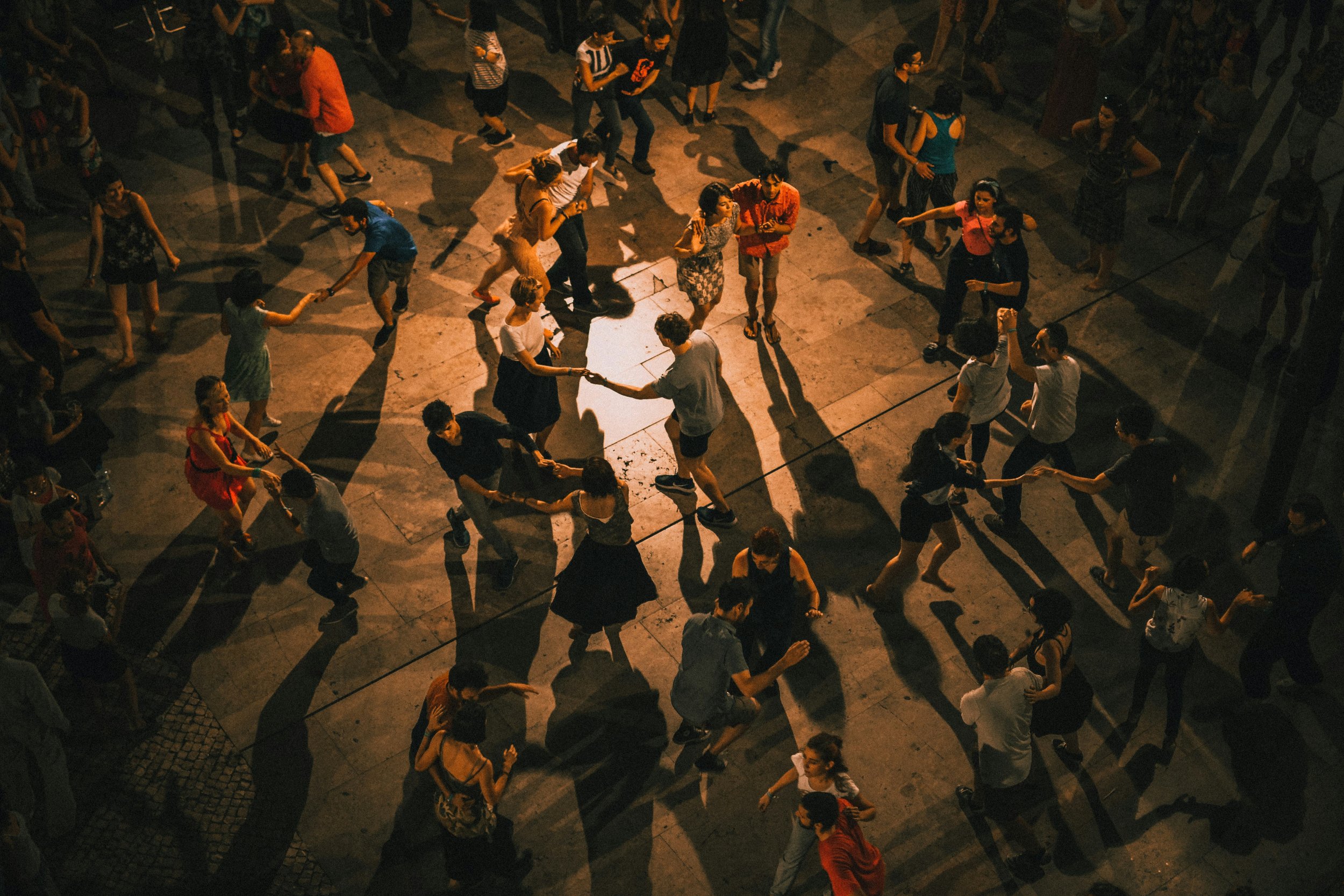
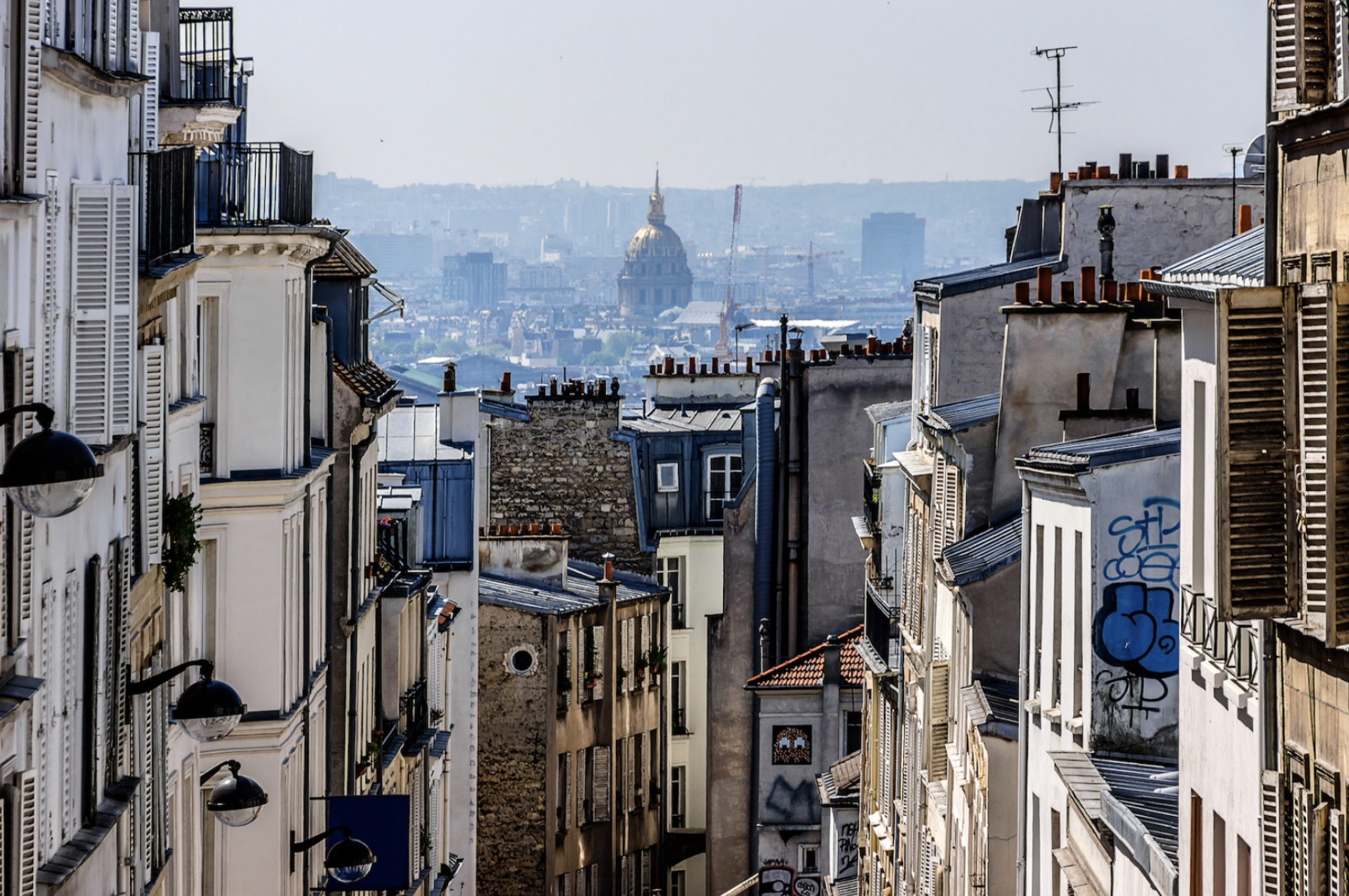


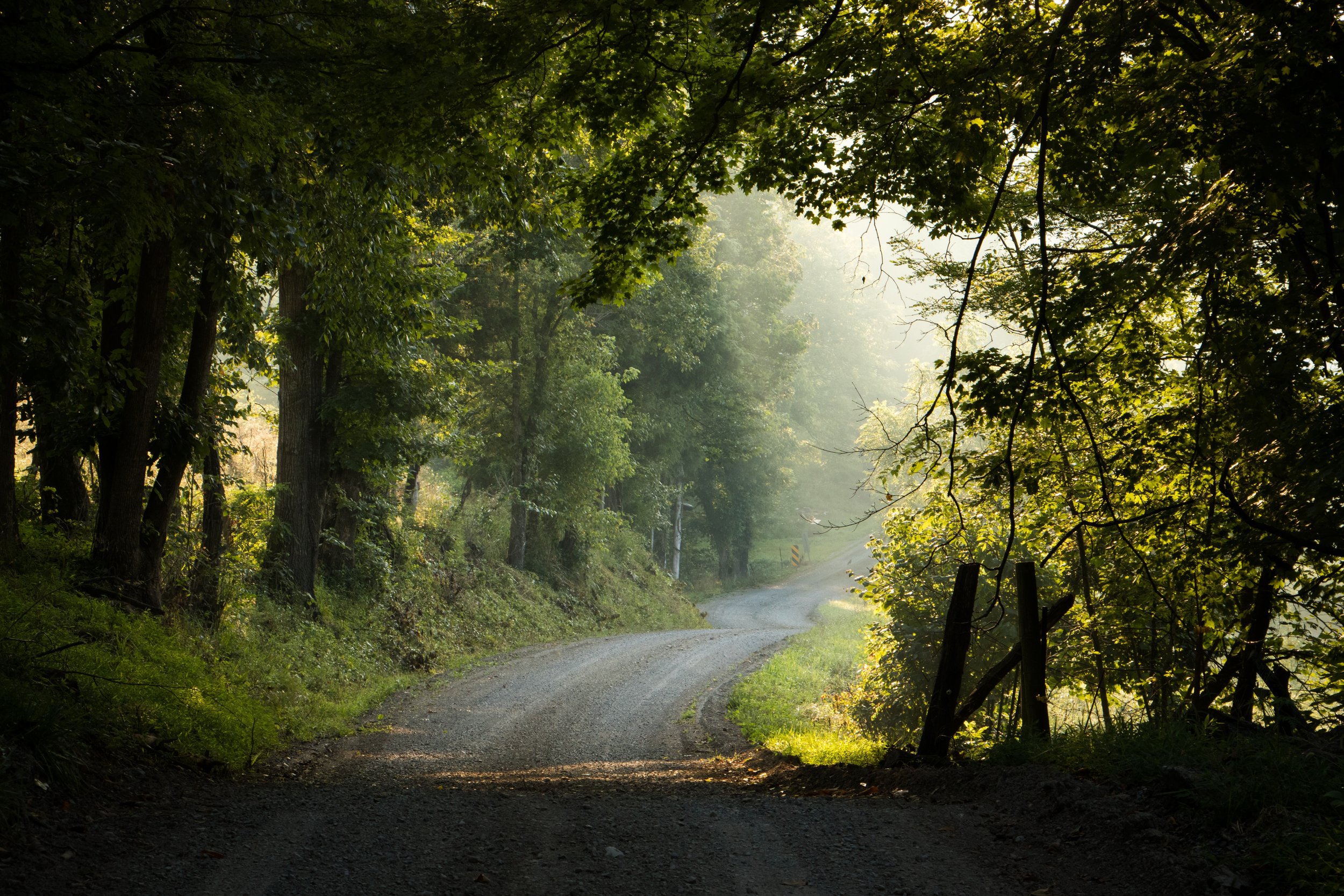

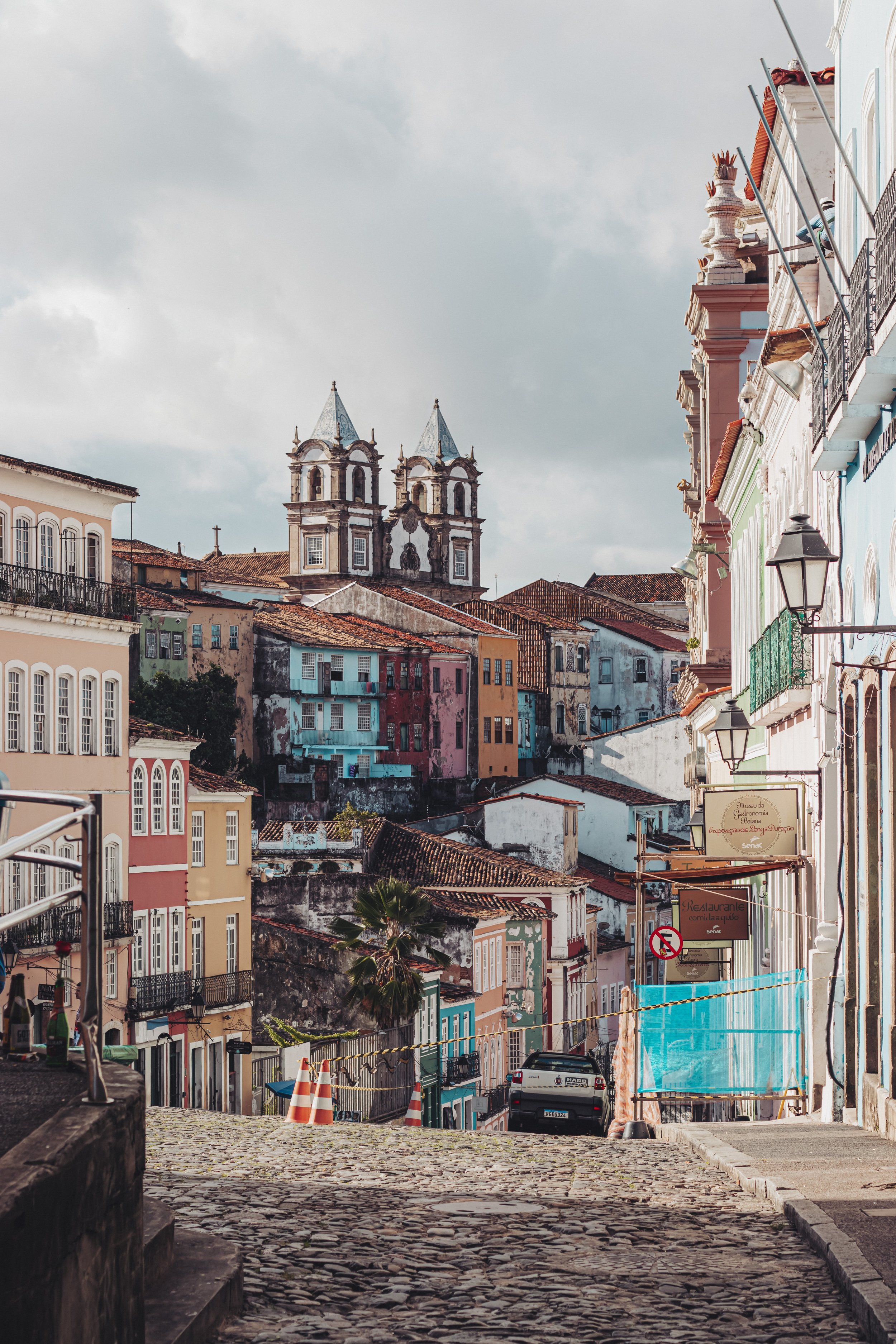
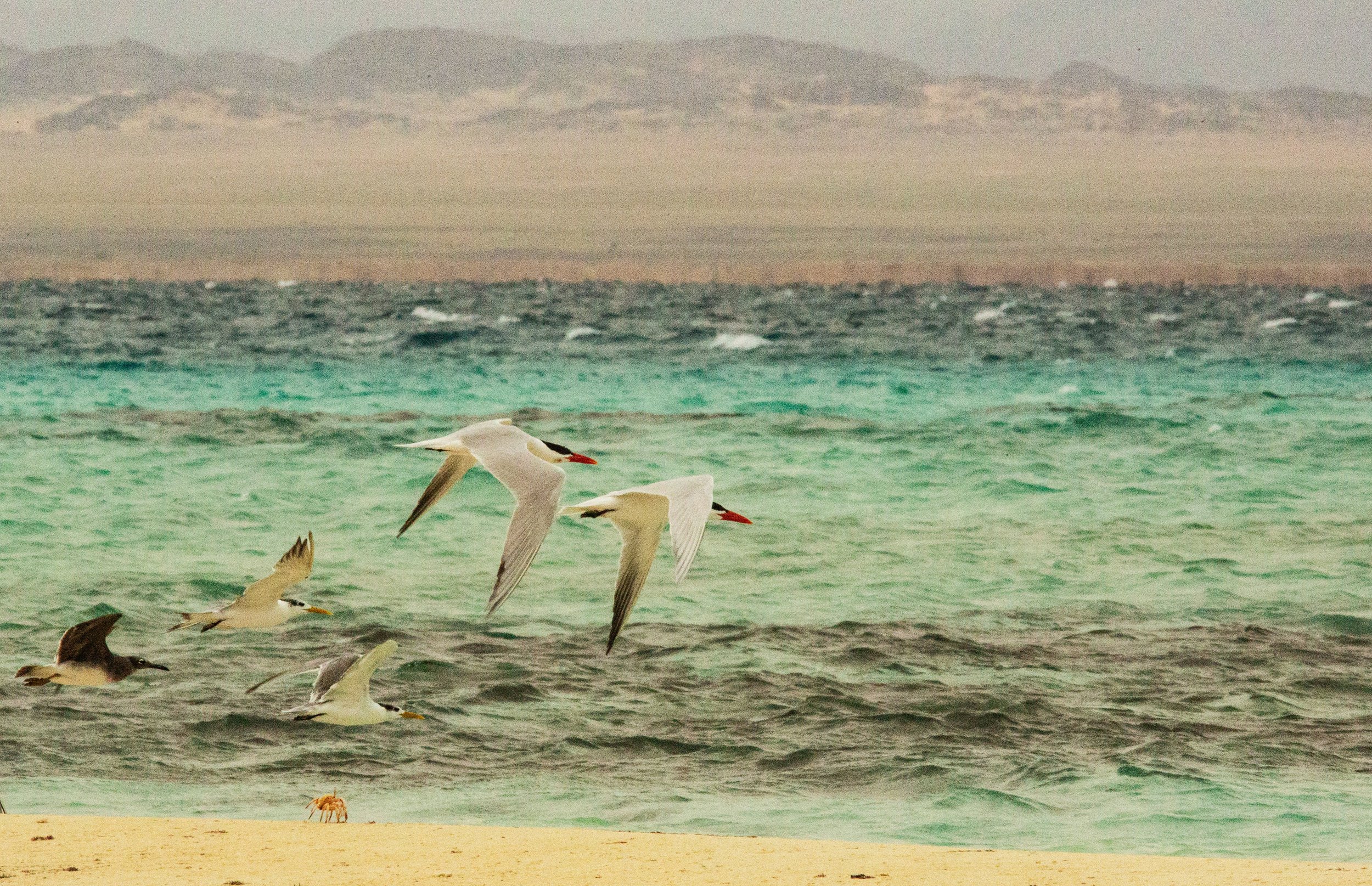
At the end of August 2023, I flew to Indianapolis where my friend, the artist Kate Parnell, picked me up in her mom’s silver Hyundai Sonata of late-90s vintage. It maxed out at 62 mph. Above the license plate, Kate had stuck a bumper sticker that read “Garfield from Memory,” the name of a four-year art project that had become her full-time job. The tagline: “The great thing about painting Garfield from memory is no one can tell you you’re wrong.”